The victim of a miscarriage of justice spanning more than 30 years is planning to sue the police for allegedly ‘bullying’ him to confess to a murder he did not commit.
Coffee shop worker Oliver Campbell, 55, has severe learning disabilities after suffering brain damage as a baby.
He was jailed for the fatal shooting of Baldev Hoondle during a robbery at a shop in Hackney, east London, on July 22, 1990.
Campbell spent 11 years in jail and a further two decades out on license before his conviction was quashed by the Court of Appeal last year after ‘compelling’ new evidence came to light.
His legal team now plan to launch a civil lawsuit in a bid to secure compensation for Campbell, accusing the Met police of exploiting the symptoms of his condition – which include a struggle with memory, concentration and retaining information – to extract a confession, The Mirror reported.
They said officers were able to ‘badger and bully’ him into signing the document despite his innonence.
However, the battle for compensation may be a long one because since 2014 it is necessary for victims of miscarriages of justice to prove beyond reasonable doubt that they did not commit a crime – an extremely high bar that is near-impossible to achieve without DNA evidence.
Mr Campbell’s solicitor Glyn Maddocks KC said such a benchmark would not be easy to prove and that the Metropolitan Police were likely to contest any claim for compensation.
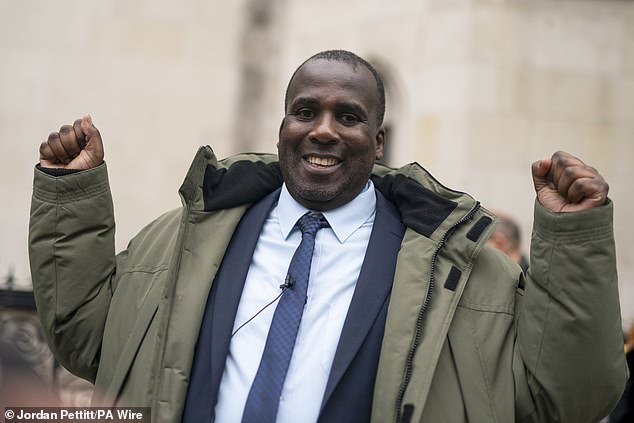
Oliver Campbell, 55, was jailed in 1991 for the fatal shooting of a shopkeeper. Pictured outside the Court of Appeal in February last year
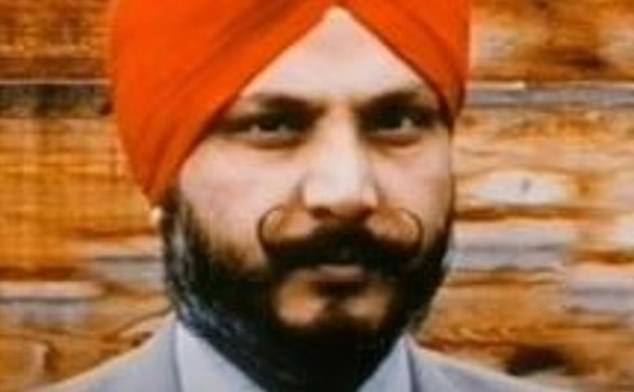
Store owner Baldev Hoondle (pictured) was shot during a robbery at a shop in Hackney, east London, on July 22 1990
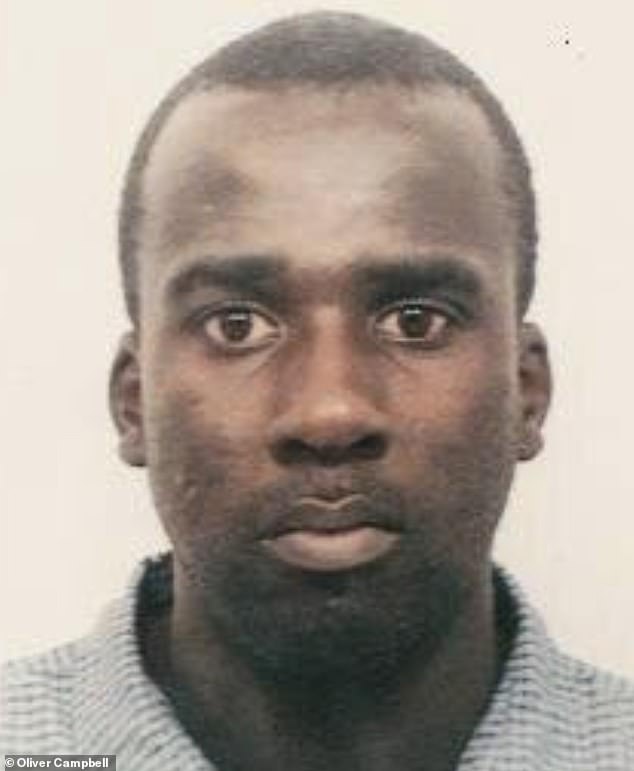
Campbell (pictured as a young man) had his convicted quashed by the Court of Appeal in September 2024 after ‘compelling’ case proving his innocence came to light
Solicitor Toby Wilton, representing Oliver, has called on the government to change the law – arguing that ‘it heaps injustice upon injustice’ by forcing victims of miscarriages of justice to bring ‘complex, adversarial, civil claims’ if they wish to receive compensation.
Following the news his 1991 conviction had been overturned, Mr Campbell said: ‘The fight for justice is finally over after nearly 34 years. I can start my life an innocent man.’
Three judges ruled that Campbell’s conviction for the murder of Hoondle was ‘unsafe’.
Key evidence put forward proving Campbell’s conviction was not safe centred around a British Knights baseball cap, found a few hundred yards from the scene.
He had purchased the hat just prior to the murder, but hairs found inside did not match Campbell’s and he later revealed the cap had been stolen from him.
A second discrepancy was over the height of the suspects. The two men said to have tried to rob Mr Hoondle and subsequently murdered him were described as five foot 10 inches in height, whereas Campbell is six foot three inches.
Mr Hoondle’s son was also unable to pick out Mr Campbell in an identity parade, despite claiming he had come ‘face to face’ with the gunman.
Mr Campbell was 21 when he was jailed following a trial at the Old Bailey, having also been convicted of conspiracy to rob.
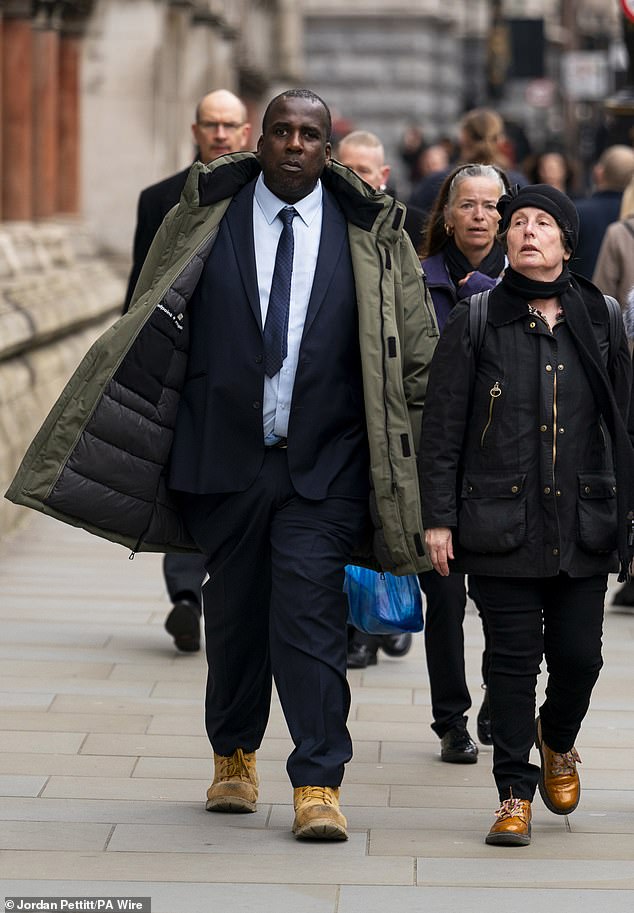
Since his conviction, Campbell fought to clear his name, losing his first appeal back in 1994, before a second appeal was dismissed in 2019
In their Court of Appeal ruling, Lord Justice Holroyde, sitting with Mr Justice Bourne and Mrs Justice Stacey, said they had ‘concluded that the convictions are unsafe’.
He said: ‘We accept that, considered in the light of the fresh evidence, the rulings might be different.’
He continued: ‘A jury knowing of the fresh evidence would be considering the reliability of those confessions in a materially different context.
‘In those circumstances, we cannot say that the fresh evidence could not reasonably have affected the decision of the jury to convict.’
The Court of Appeal decision came following a a two-day hearing in London at the end of February.
The court was told that Campbell was interviewed during the police investigation without a solicitor and officers may have ‘deliberately lied’ to him to adduce confessions.
He was interviewed 14 times but in some cases did not have a solicitor or appropriate adult present.
Campbell’s learning difficulties meant he made admissions described as ‘simply absurd’, ‘nonsense’ and containing a ‘litany of inconsistencies’ against the facts of the case, judges heard.
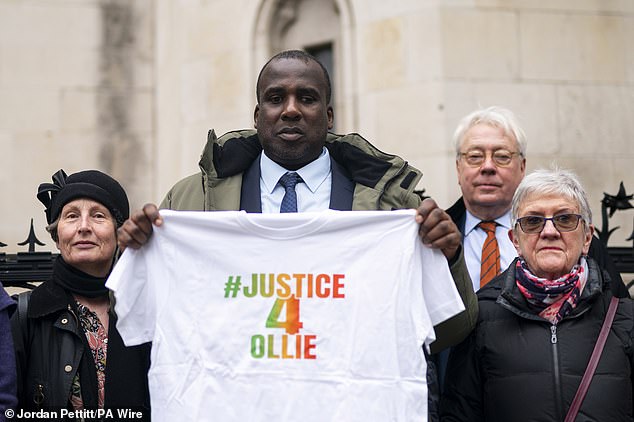
Campbell (pictured in February 2024) suffered severe brain damage as an eight-month-old baby and continues to struggle with memory, concentration and retaining information
‘After 35 years of trying to clear his name, he is enjoying his life after the nightmare of prison, life licence, and the constant battle and waiting for those in authority to hear his appeal,’ Campbell’s friend said.
‘He works in a coffee shop and pursues his passion for music festivals and events, without having to report to probation all the time now.
‘However, he feels it is totally unfair that he has received no payout for the loss of his freedom and the loss of his liberty and the fact he was unable to have an ordinary life.’
A Metropolitan Police spokesperson said that the conviction was quashed based on evidence that was not available at the time of Campbell’s confession in 1991.
They claim that Campbell declined access to independent legal advice having been found fit for detention and interview following a medical exam.











